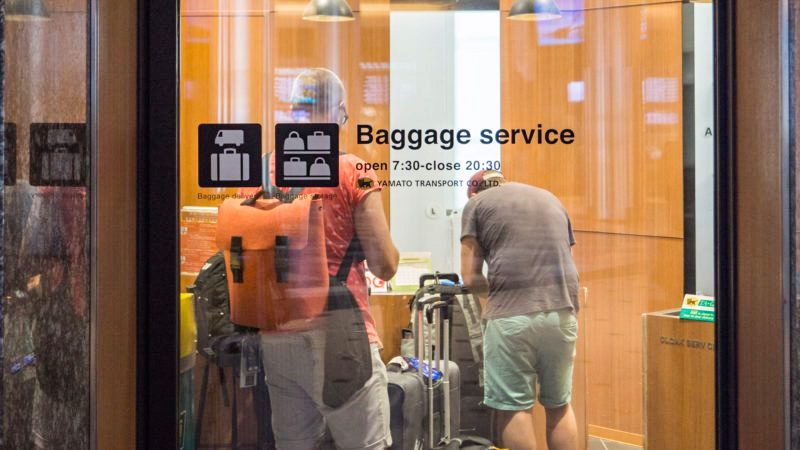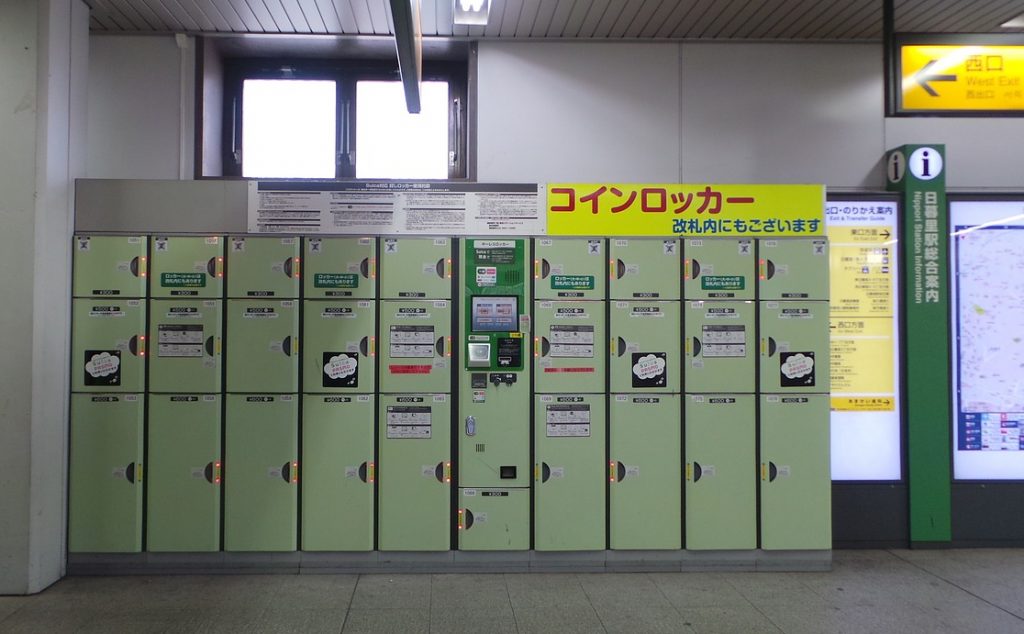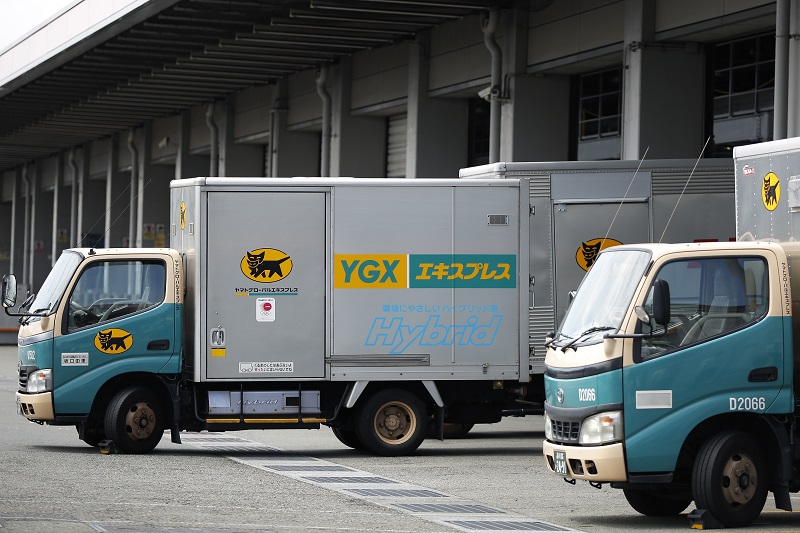You’re using your Japan Rail Pass to tour Japan. You depart your train in a new town, and you want to see some of the sights before settling into your next location. What, though, will you do with all of that luggage?
Fortunately for you, Japan has the solutions for just such a travel dilemma. International travelers may be unfamiliar with the luggage forwarding services and coin-operated lockers available in many places throughout Japan. Consider the following travel tips to make your stay in this beautiful country easy and hassle free.
Takkyubin and luggage forwarding services
Luggage forwarding is a type of delivery service. Instead of carrying your luggage with you on public transportation or shinkansen trains you can often have it delivered directly to your destination.
Many airports have Takuhaibin luggage delivery counters (also called Takkyubin, which is actually a registered trademark). No prior reservation is required for transporting luggage – only your contact information, that of your hotel, and payment.
Make sure to have essential supplies, such as a change of clothes and toiletries, packed in a small bag you are not having delivered. Baggage delivery may arrive the same day – if staying near the airport, bags typically arrive by 5 PM – but sometimes takes longer.
When you arrive at your hotel, present your luggage receipt to the desk attendant. If having your luggage delivered to the airport for your return trip, keep in mind that it should be sent to the airport no less than two days before your expected departure. Airport luggage forwarding often costs between ¥1,500 and ¥3,000.
When traveling by train, you may stop at several attractions before reaching your final destination. Also, during busy travel times, the train’s luggage storage area may not have enough room. In this case, you may want to have your luggage forwarded to where you are staying.
How to book a luggage forwarding service
To use these Takkyubin luggage services, you may call ahead, make reservations on the internet, or visit a convenience store – either inside the train station or one of several dedicated delivery companies, such as Kuroneko Yamato, Sagawa Express, or Nittsu. Baggage service counters may also be found in shopping malls or supermarkets. Locations offering Takkyubin service are indicated by the symbol of a yellow oval behind a black catt carrying a kitten. If departing from a hotel, you can have the staff make luggage forwarding arrangements for you.

When purchasing baggage forwarding services, you can specify the date, time, and location to which you’d like to have your bags delivered. Just as at the airport, you will also need to have your contact information and a payment method handy. Luggage can be held for up to seven days prior to delivery. Depending on the size of your baggage, these transport services usually range between ¥1,000 and ¥5,000 in price, per item. For example, next day delivery of luggage from Tokyo to Kyoto may cost around ¥1,900.
Travel tip: Before leaving home, print out the name and address of each hotel you will be using in both English and Japanese. When requesting luggage forwarding services, simply present your printout to the attendant.
Coin lockers in train stations
Airports and train stations are equipped with automatic, coin-operated left luggage lockers. The lockers differ in size, so you can find one to meet the needs of your baggage storage. The largest lockers usually have dimensions of 117 centimeters by 57 centimeters by 43 centimeters.
How to use coin lockers in Japan? They are rented for the day, from the time of rental until midnight, although some can store your suitcase or backpack for up to 3 days. Costs for lockers range between ¥300 and ¥700 per day.
In case your baggage will not fit in even the large lockers, many stations also have left luggage services, where baggage is left with the staff rather than in a locker. These services may cost between ¥500 and ¥1,000.
Some attractions, such as onsen, museums, and department stores may also offer coin-operated lockers. Keep in mind, though, that these are generally intended for smaller items, such as purses, camera bags, or shopping bags. Large luggage may not fit in these coin lockers.

Luggage forwarding or coin lockers: Which should you choose?
The option you choose will likely depend upon your unique needs. If you need to store your baggage for a short time and retrieve it same-day, lockers are ideal. Forwarding is an excellent service, but if you are staying at a private residence – such as those available through AirBnB – it is less advisable, as you will have to be at your accommodations to receive your bags. With a four-hour delivery window, this can cut into your vacation time. In these circumstances, coin lockers could be a better option. On the contrary, for a large group of people with large suitcases, luggage forwarding may be the best option.
What if you have forgotten a luggage item in a locker, on a train, at a station, or the airport? Do not despair, as theft is rare in Japan. Simply contact the company. If the item was found, it can be retrieved from the station’s lost property office.
With your newfound understanding of Japan’s coin locker and luggage forwarding services, you are now prepared to make your Japanese vacation the trip of a lifetime.
